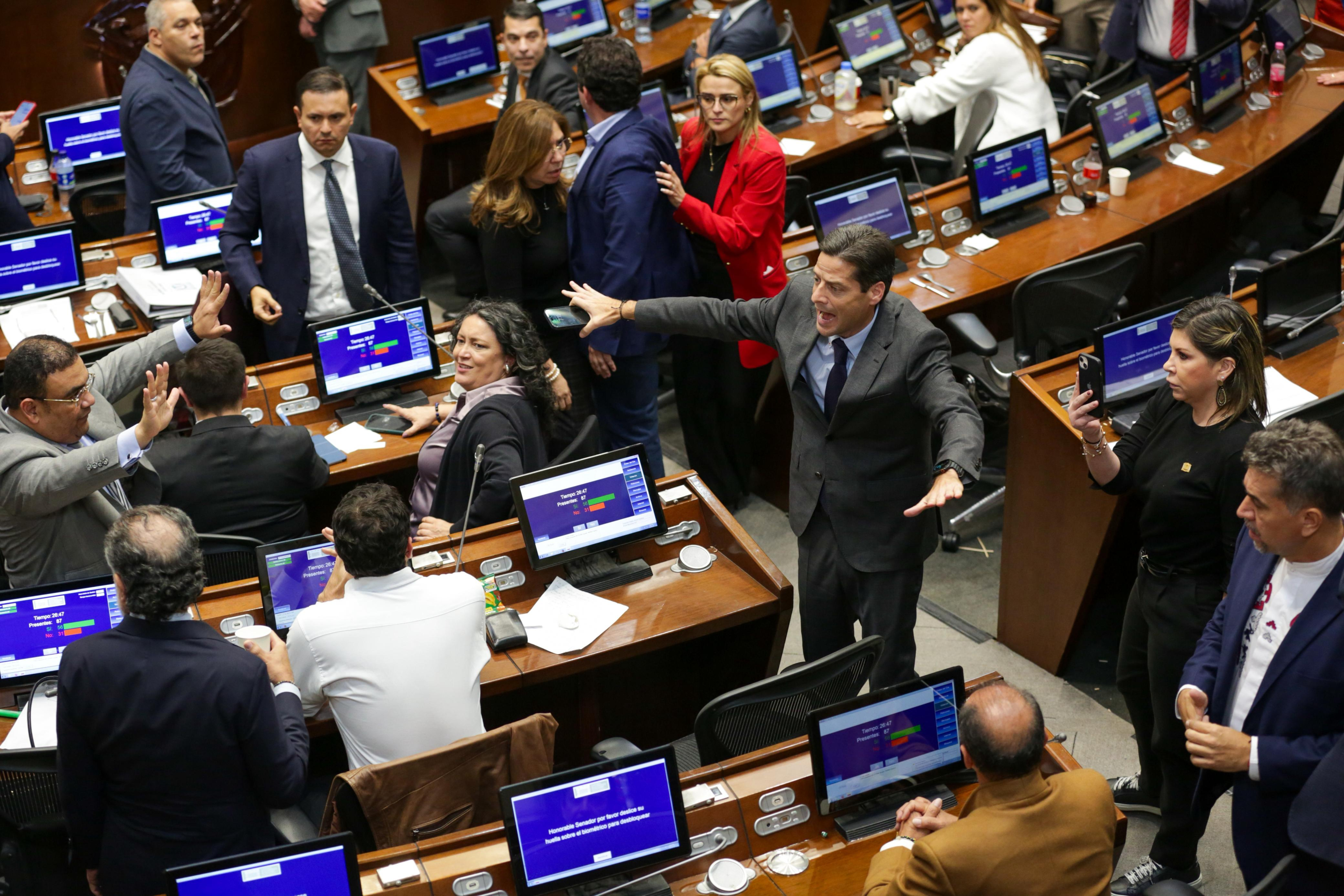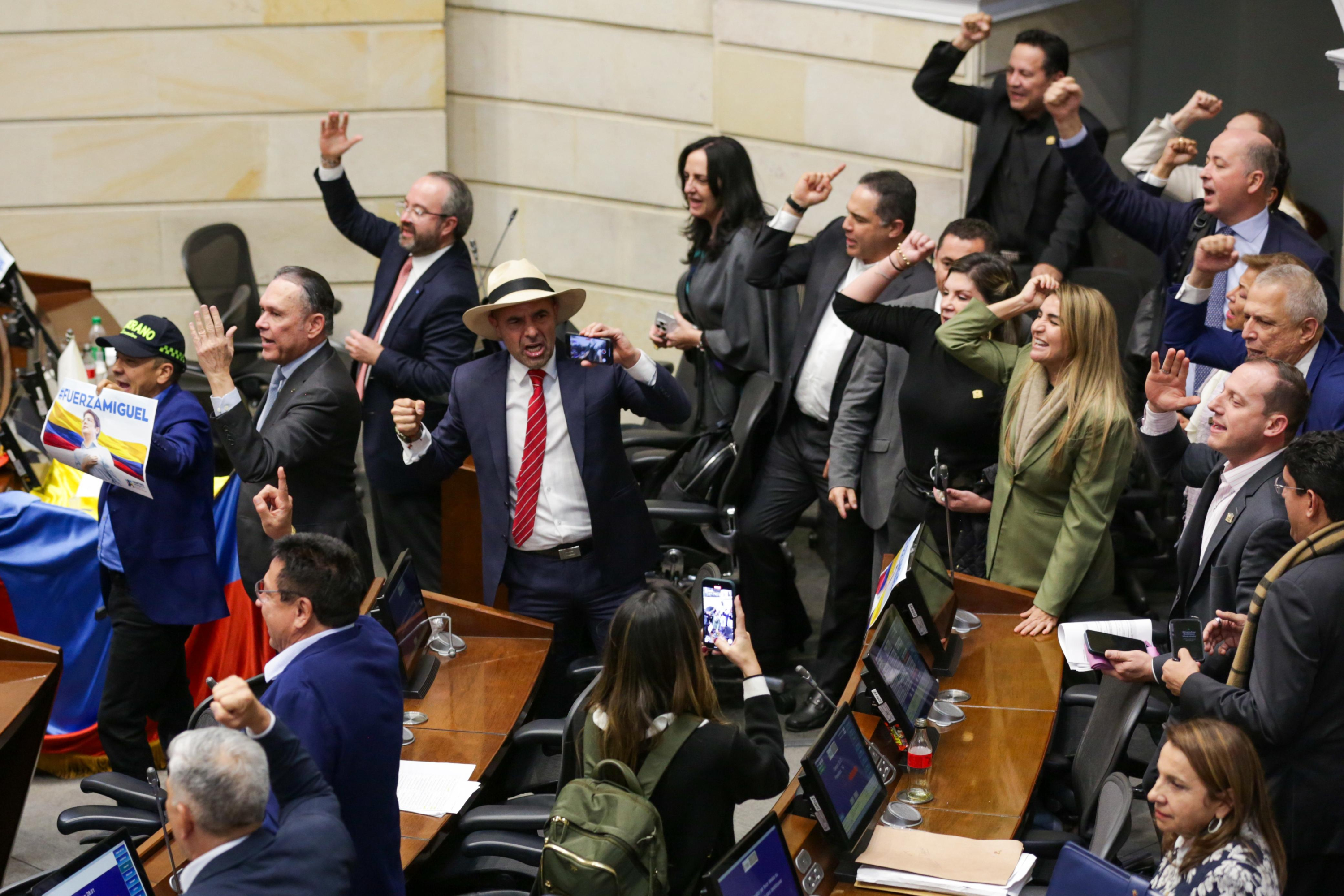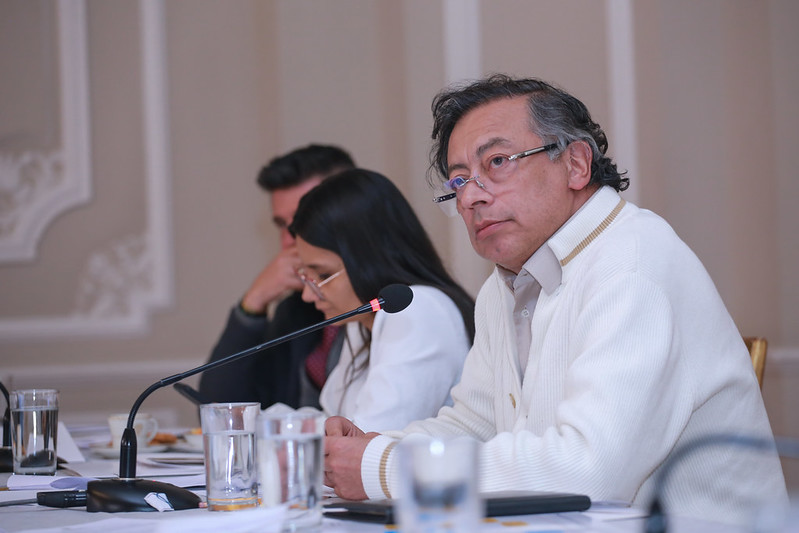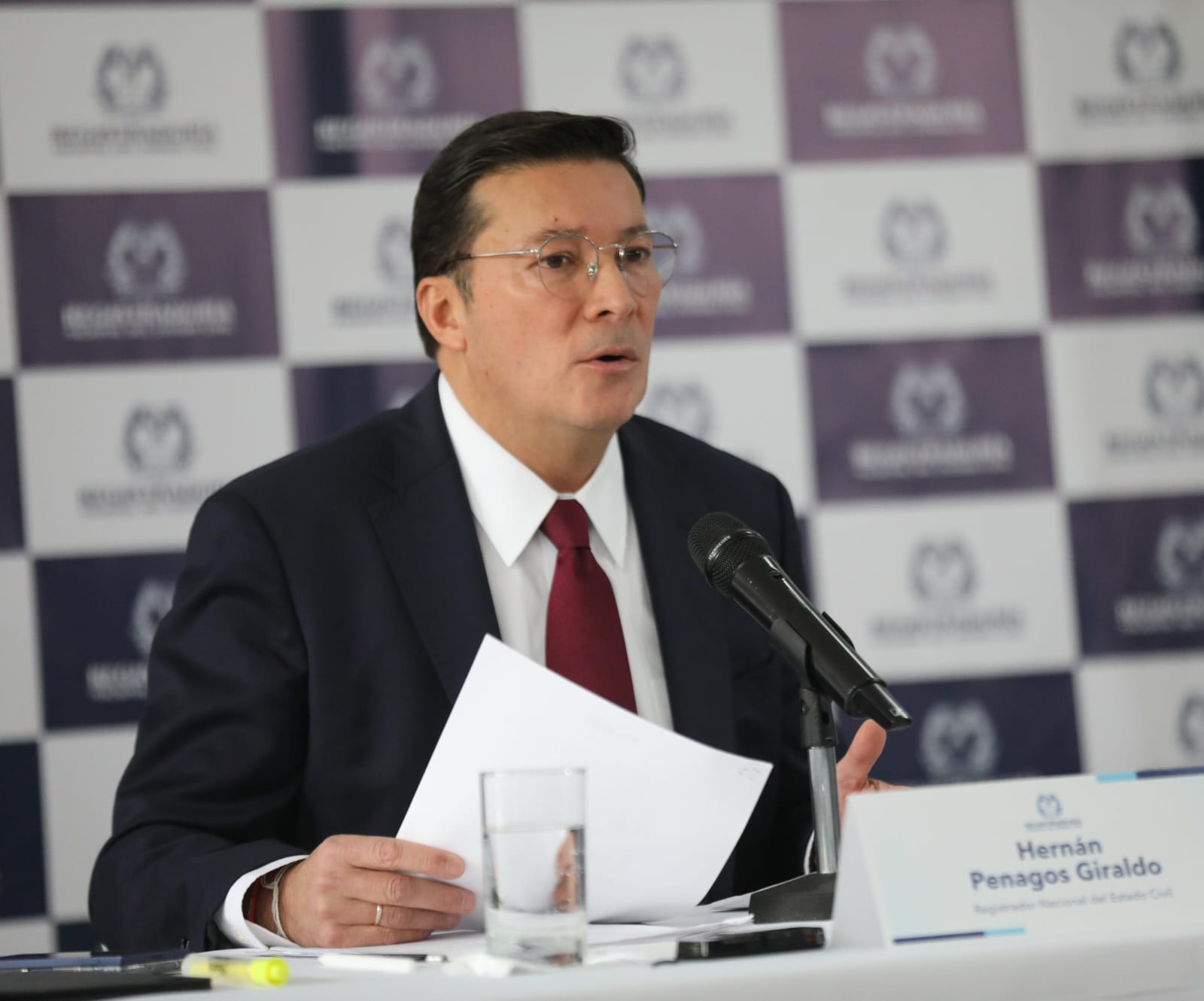The Senate rejected the government's proposed referendum 2.0.

The Senate of the Republic has once again denied the call for a referendum presented by the government of President Gustavo Petro.
On Tuesday, June 17, with 52 votes against and 2 in favor, the plenary session of the corporation rejected for the second time the mechanism through which the government sought to call the people to the polls to decide on matters related to labor and health reforms. The Historical Pact faction and the executive branch's allies left the chamber and did not participate in the vote, anticipating defeat.

The Senate denied the 2.0 referendum on Tuesday, June 17. Photo: César Melgarejo. EL TIEMPO
The corporation's decision is in line with its May 14 decision, when the first referendum presented—which they are now attempting to revive with a controversial "decree"—was rejected with 49 votes against and 47 in favor.
The opposition celebrated this latest defeat for the government, which comes after the same body approved, in its fourth and final debate, the labor reform presented by the ruling party.

Opposition celebrates the dismissal of the 2.0 referendum. Photo: César Melgarejo. EL TIEMPO
"Despite their tricks, we're ruining the consultations and any others they want. We're defending Colombia until the very end," asserted Democratic Center Senator Esteban Quintero.
"We sank the Popular Consultation 2.0 again. 52 of us voted against the consultation and 2 voted yes. The Historic Pact tried to dissolve the quorum," asserted Senator María Fernanda Cabal , also a Uribe supporter.
President Gustavo Petro's reaction President Gustavo Petro spoke out after the Senate's decision, noting that this result was only achieved because the two congressmen who voted against the vote remained in the quorum.

President Gustavo Petro. Photo: Presidency of the Republic
"According to this Senate vote, the opponents of the referendum never had a majority for the referendum, as we stated, and they didn't have one when the first referendum was voted on and fraud was committed. Only two people betrayed the grand coalition in favor of workers' rights, and they constitute the quorum; otherwise, we would be two days away from holding a referendum on questions about the health system," the president asserted.
The head of state added that "the popular consultation by decree remains in effect until the conciliation vote on the bill."
The rapporteurs for the labor reform conciliation process are expected to be appointed this Wednesday, and a single text will emerge from there. The bill will be approved by the Senate and House plenary sessions on Thursday, and no later than Friday. Otherwise, the law will fail due to lack of formalities.
Gustavo Petro says he would repeal the referendum decree. Once the conciliation agreement is approved, President Petro is expected to withdraw the popular consultation decree, provided that a reform text similar to the one passed by the House is ultimately approved. The mood is favorable for this, as the most sensitive points approved by the Senate are similar to the bill approved by the House of Representatives.

Penagos said the referendum would not be held on August 7. Photo: Milton Díaz / EL TIEMPO
For now, registrar Hernán Penagos has decided to submit a request to the Council of State to determine whether he should organize the voting day for the first referendum, as President Gustavo Petro has indicated, or whether he should refuse to do so, as the Senate has demanded, arguing that this mechanism has already been rejected.
eltiempo




